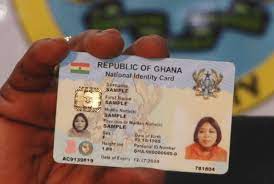The National Identification Authority (NIA) in Ghana is set to conduct a continuous registration exercise, offering an opportunity for over 2.5 million Ghanaians aged 15 and above who are yet to secure the national ID Card.
The initiative, starting in December, aims to capture the remaining individuals from the first cohort of about 20 million people above 14 years old. The means of identification, called Ghana Card, facilitates essential transactions, including banking, tax payment, land transactions, national health insurance, drivers’ licences, SIM card registration, and passport application.
Read also: Kenya signs MOU with UN to promote digital identification
Current Registration Status and Challenges
As of October 31, 2023, data from the NIA indicated that 17.56 million Ghanaians aged 15 and above, out of a population of 30.8 million, have been registered. Over 17.51 million cards have been printed, with 16.62 million issued. Approximately 895,000 printed cards are ready for issuance, pending recipients’ availability. Challenges include about 49,000 cards yet to be printed for technical reasons and 101,000 individuals facing investigation for attempting multiple registrations.
Future Plans for Registration and Legal Identity
The NIA plans to capture Ghanaians abroad in 2024, providing registration services for about three million citizens outside the country. The registration will include seven million young Ghanaians under 15 years of age and 10,000 refugees, asylum seekers, and other persons of concern.
While emphasising the importance of legal identity, the initiative aligns with the government’s commitment to achieving Sustainable Development Goals (SDGs) by providing legal identity, including birth registration, for all citizens by 2030.
Prospective Challenges and Importance of Legal Identity
A prospective Ghana Card applicant in a media interview, highlighted the significance of the card for personal and business transactions, emphasising its importance for Ghanaians living abroad. Another citizen expressed support for the registration initiative abroad, citing the challenges faced in travelling to Ghana for card registration.
The Executive Secretary of the NIA, Prof. Kenneth Agyemang Attafuah, outlined plans to register the remaining millions of individuals, Ghanaians abroad, and children less than 14. The Ghana Card, which is issued free to Ghanaians and requires payment from foreigners, employs biometric technology and security features to prevent forgery.
According to Attafuah, “Our plan is to start within the next two months registering the 2.5 million yet to be covered, Ghanaians abroad and those aged between six and 14.
“The obligation is to register all Ghanaians and so, we will add Ghanaians under six years old.
A digital infrastructure analyst, Edward David, stressed that providing legal identity for citizens promotes peaceful and inclusive societies for sustainable development. Digital identity, such as the Ghana Card, facilitates access to various goods and services, including banking and government benefits. David emphasised the government’s need to fulfil obligations to the NIA to ensure the success of creating an inclusive society with the Ghana Card.
The continuous registration exercise by the NIA reflects ongoing efforts to provide legal identity for all Ghanaians, contributing to the nation’s development goals and international commitments.




